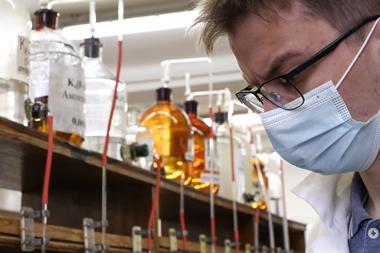Most universities plan to start the new academic year with a combination of remote teaching and socially distanced face-to-face experiences for practical and other key elements. But a new survey has found that prospective students have a raft of concerns.
According to a poll of 516 prospective students for the Universities and Colleges Union (UCU), almost half fear funding cuts, as a result of the pandemic, will damage their education, and just under a quarter worry that that their university will go bust. Significantly, over two-thirds support a delayed start to the year if it means more face-to-face teaching. The survey follows another in May that found 17% more students than usual were considering deferring in the new academic year.
‘It is hardly surprising that students are anxious,’ says UCU general secretary Sally Hunt. ‘It is now critical that government agrees to provide increased financial backing. No university should jeopardise the safety of staff or students to try and offer a more traditional university experience. Government needs to guarantee funding so institutions [can] put welfare … first, and plan for a delayed start if this is the safest course of action.’
Budgetary pressures are nothing new for chemistry departments. Heads have spent the past few years looking at ways to diversify income, improve efficiency and share resources, and this process will continue post-pandemic, says Lizzy Ostler, spokesperson for the Heads of Chemistry UK (HCUK). Chemistry departments are collaborating on finding the best ways to ensure that students continue to experience ‘excellent teaching’. But delayed starts are unlikely, as departments couldn’t compress content into a shortened year with a late start date, and a January start would require teaching undergraduates into the summer, which could interfere with postgraduate and research students’ work.
However, Ostler would like to reassure new students. HCUK is in the early stages of reorganising courses to ensure ‘high-class theoretical and practical learning opportunities’ but it’s confident that the value of a degree, and associated experiences, will be maintained.
Emma Raven, head of the chemistry department at the University of Bristol, also strikes an optimistic note. ‘Some of the blended learning approaches proposed for the 2020 entry have been well received because they allow students to learn at their own pace. So there are clear advantages.’ She also notes that universities managed the transition to online exams well. ‘So I have confidence that the academic offerings in chemistry in the autumn will be modern, interesting and of high quality.’
However, Nick Hillman, director of the Higher Education Policy Institute, is worried about university finances. ‘Sciences do risk being in line for cuts because they are so often cross-subsidised by things like international student fees, which are currently under threat. Universities are looking at making redundancies but they are also talking to government about additional support and thinking creatively about ways to tackle short-term cash flow challenges.’












No comments yet